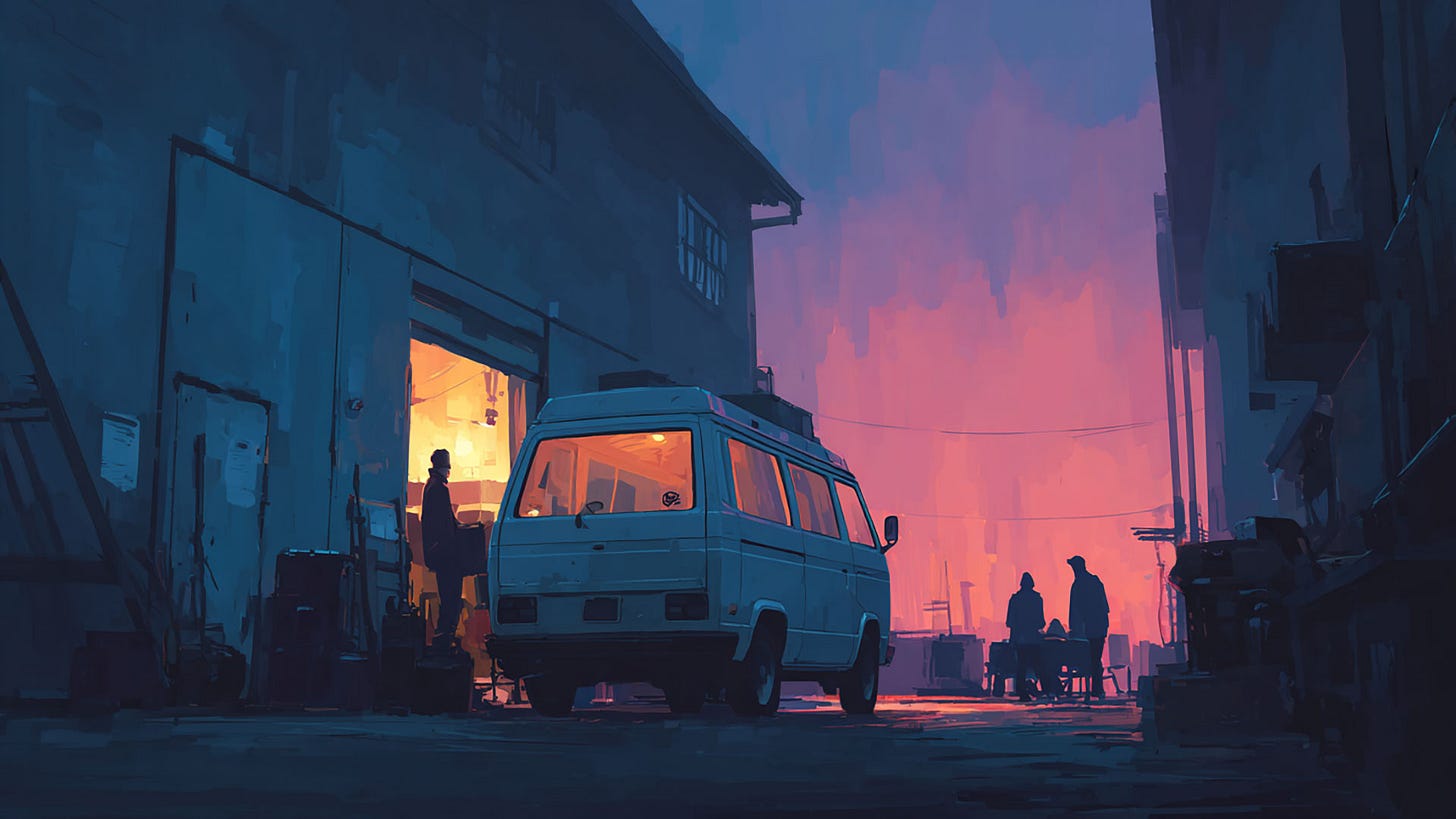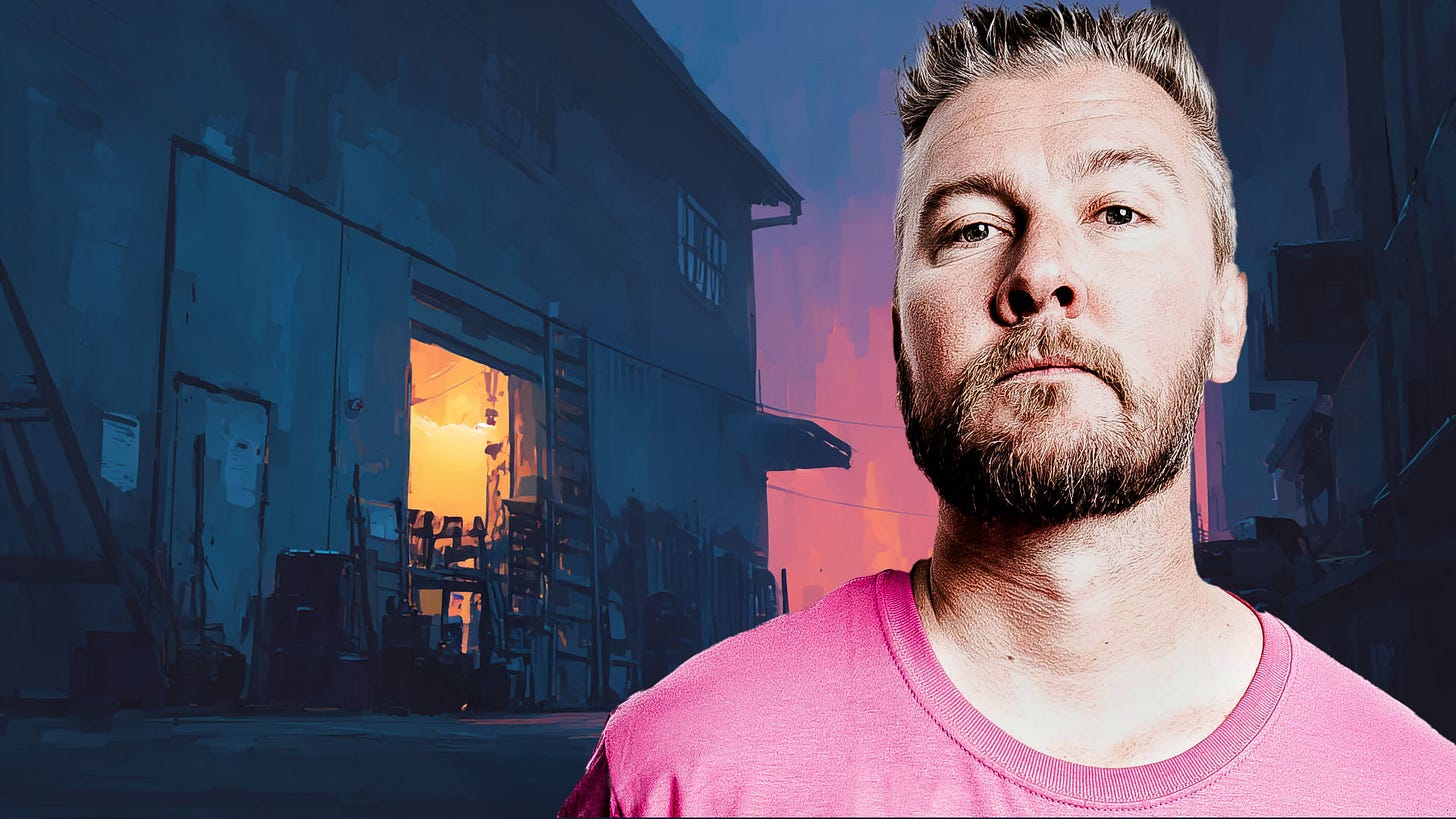7 Lessons You Learn the Hard Way
The hardest part of building something meaningful isn’t starting. It’s staying connected to what made it worth building in the first place.
There’s a particular kind of business that doesn’t emerge from a whiteboard or a strategy deck. It begins with a few people in a room, drawn together by instinct, not instruction. There’s no playbook, just a shared bias toward action, a willingness to figure it out in public, and a sense that if they don’t do this thing, no one will.
You could call that a startup. You could just as easily call it a band.
What’s interesting about the comparison isn’t the aesthetic—it’s the structure. Bands, like businesses, follow a lifecycle. Early experimentation. First signs of traction. The pressure to formalize. The challenge of staying together long enough to build something that lasts. And along the way, they confront the same questions that any creative team faces:
How do we evolve without losing the thread?
How do we preserve creative freedom while scaling delivery?
What happens when the thing we love becomes the thing we have to manage?
The mythology around business tends to compress time. We celebrate breakout success and call it inevitability. But if you study the organizations that endure—whether they’re product companies, agencies, collectives, or yes, even bands—you find a slower, more deliberate truth: what lasts is what’s built slowly, together, and with a clarity of values that holds under pressure.
Building anything with other people is inherently unstable. The early momentum is fragile. It’s easy to overcorrect, to fall in love with a style before you’ve found a voice. But those who make it past that initial stretch are usually the ones willing to sit with the ambiguity. To experiment without expectation. To take influence, but not chase trends. In business terms, this looks like optionality—staying adaptable long enough to find traction worth committing to.
Eventually, something works. An audience shows up. There’s external interest—clients, customers, press, maybe even capital. And that’s when things get more complicated. Because at the precise moment you’re being rewarded for your instincts, you’re being asked to systematize them. This is where creative integrity and commercial opportunity often collide. Do you double down on what got you here, or reshape yourself to meet the moment?
There’s no universal answer. But what’s clear is that the businesses with staying power are the ones that know which parts of their identity are flexible, and which are not. They don’t treat every opportunity as a referendum on their direction. They treat it as a test of discipline.
Team dynamics shift too. The early days are often defined by proximity—everyone doing everything, decisions made in real-time, tension managed informally. But scale requires structure, and structure changes how people interact. Personality differences become management problems. What once felt scrappy starts to feel inefficient. And unless someone steps into the role of leadership—not authority, but stewardship—the project starts to break down internally before it fails externally.
The challenge, then, is not just to grow—it’s to grow without breaking what made it work in the first place.
That’s the real arc. And it’s rarely acknowledged. We talk a lot about launch. About vision. About scale. But the work of staying—of navigating shifting roles, market changes, personal evolution—that’s the part we tend to romanticize only in hindsight.
The better metaphor, then, isn’t the garage. It’s the rehearsal. The ongoing process of listening, adjusting, making space, and tightening the work until it connects again. Great teams don’t just play the hits. They keep writing. Keep showing up. And in doing so, they create not just output, but endurance.
It’s a story we’ve explored before—in June 2025, in a conversation with James Atkin of EMF, who spoke about the unexpected business of sustaining a global hit across decades. And it’s a story we’ll revisit today with Eggs! the Podcast alumni Jason Devore, the longtime frontman of Authority Zero, songwriter, visual artist, and small business owner who’s spent over 30 years building not just a band, but a brand.
What they both offer—beyond stage presence—is a set of lived-in lessons for anyone who wants to build something that lasts.
30 Years, (Authority) Zero Compromise
Jason Devore is the longtime frontman of Authority Zero, a band that’s been blending punk, ska, reggae, and melodic hardcore into a fiercely loyal following for more than 30 years. From their early days playing backyard shows in Phoenix, Arizona to their recent international tours and a full discography of albums, EPs, and live recordings, the band has sustained a rare kind of momentum—equal parts DIY ethic, relentless reinvention, and a deep connection with fans.
But Jason’s work extends far beyond the stage. He’s also a solo artist, a visual creative, and the co-founder of Earth Skateboards, a mission-driven company that partners with pro skaters and visual artists to raise funds for nonprofit organizations. Whether he’s releasing new music or launching social ventures, Jason has built a life around consistency, integrity, and creative evolution.
DeVore’s path is one of sustained intent—adapting without diluting, expanding without losing direction. In a landscape where momentum often erodes identity, he’s managed to evolve while staying grounded in the same core values that shaped his earliest work. It’s the kind of clarity that doesn’t just keep a brand consistent—it keeps it alive.
Hard Lessons and Lasting Notes
If longevity is the goal, then learning to adapt without selling out is the skill. Over the course of his career, Jason Devore has faced nearly every challenge that comes with building something from the ground up: creative drift, financial pressure, burnout, turnover, and reinvention. His insights aren’t abstract—they’re earned. The quotes below reveal what it takes to hold a group together, stay grounded in your mission, and keep showing up even when the spotlight fades.
“We were never trying to chase anything. We were just trying to be us—and that ended up being our strongest asset.”
Insight: Real momentum often takes longer than expected. The patience to keep showing up—without immediate payoff—is one of the most underrated advantages a founder can have.
“When I was thirteen, a guy from the band Pennywise handed me a sticker and took a minute to talk to me. He probably forgot about it by the next show, but I never did.”
Insight: The smallest interactions can leave the deepest marks. Whether it’s a fan, a customer, or a future partner, those moments of genuine connection become the stories people carry forward—and sometimes, the spark that starts everything else.
“We played backyards, house parties, high schools—anywhere that would let us plug in. We did that for seven years before anything really happened.”
Insight: Endurance is a competitive advantage. In business as in music, most people quit long before the payoff arrives. Momentum doesn’t belong to the fastest starters—it belongs to the ones who keep showing up after everyone else goes home.
“You’re in a van for 18 hours a day. You play for one. You better like the people you’re working with.”
Insight: Most of the work isn’t glamorous—and most of the time is spent “off-stage.” The health of your team determines the health of your business, especially when conditions get rough.
“The first time we got together as a full band in years, we just wrote. No plan, no pitch—just wanted to find out what we actually sound like now.”
Insight: Reinvention starts with curiosity. If you’re always trying to meet market expectations, you lose the chance to rediscover what’s actually worth building next.
“I’ve worn a lot of hats—tour manager, merch guy, booking agent, band leader. That’s how you survive when you’re not built on a machine.”
Insight: In a lean system, versatility is currency. The willingness to do unglamorous work is often what separates those who last from those who peak early.
“Passive aggressive behavior is the death of a band. And it’s the same in business. If you bury your resentment, it eventually buries the group.”
Insight: Culture doesn’t just happen—it’s actively maintained. Long-term partnerships require emotional maturity and proactive communication. Ignore it, and even good businesses fall apart.
Built to Endure
The throughline in all of this—whether you’re building a company, a brand, or a band—isn’t just strategy. It’s stamina. The ones who last aren’t always the most talented or well-funded. They’re the ones who keep showing up, even when the stage is small, the audience is quiet, or the mission feels blurry.
Jason Devore’s story is a reminder that you don’t have to scale fast to succeed. You have to stay honest. Stay together. Stay long enough for the work to mean something—not just to the market, but to the people doing it. That kind of clarity is easy to forget when you’re chasing growth, but it’s usually the only reason growth sticks.
The road from garage to arena isn’t paved with breakout moments—it’s built on discipline, identity, and endurance. Stay in the van.
Thanks for reading,
—Ryan
Ready for more?
Catch Jason Devore’s interview in its entirety on Eggs! The Podcast.
Don’t miss a show! Subscribe on Spotify, Apple Podcasts, or really anywhere great podcasts are found.
Path Picks
Cool stuff to help you forge your path to greatness.
Note: The Path Weekly is reader-supported. As such, I may be using affiliate links below. If you want to support the newsletter at no additional cost to you, please consider using the links below. If you’d rather not, most items below are widely available anywhere you want to shop. Thanks! –R
Reading list
If you're looking to go deeper on the themes from this week's newsletter, here are a few books that pair well with the conversation and offer a broader perspective:
The War of Art by Steven Pressfield
A classic on overcoming resistance and showing up every day. Perfectly matches Jason’s message about consistency and doing the work long before results show up.Let My People Go Surfing by Yvon Chouinard
The Patagonia founder’s memoir/business book hybrid, rooted in staying true to your values while building something that lasts. A direct philosophical match with Jason’s blend of art, commerce, and mission.Creativity, Inc. by Ed Catmull
A behind-the-scenes look at how Pixar built and maintained creative excellence across decades. Offers real insight into team dynamics, reinvention, and principled leadership.
More to explore
Official Website:
Work with me
Ryan Roghaar - Fractional CMO/Creative Director/Art Director: https://rogha.ar/portfolio
R2 - Creative Services for Agencies and SMBs: https://www.r2mg.com
***NEW*** R2 Health - Healthcare branding & strategy that connects, inspires trust, and drives results. Powered by R2. https://www.r2mghealth.com
Eggs! The Podcast: https://www.eggscast.com
Would you like a personal introduction to any of the incredible leaders featured in The Path Weekly to explore business or other collaborative opportunities?
Contact me here to learn more about my B2B matchmaking service.
Get featured
Do you want to be featured in a future edition of The Path Weekly?
Contact me to learn more.





